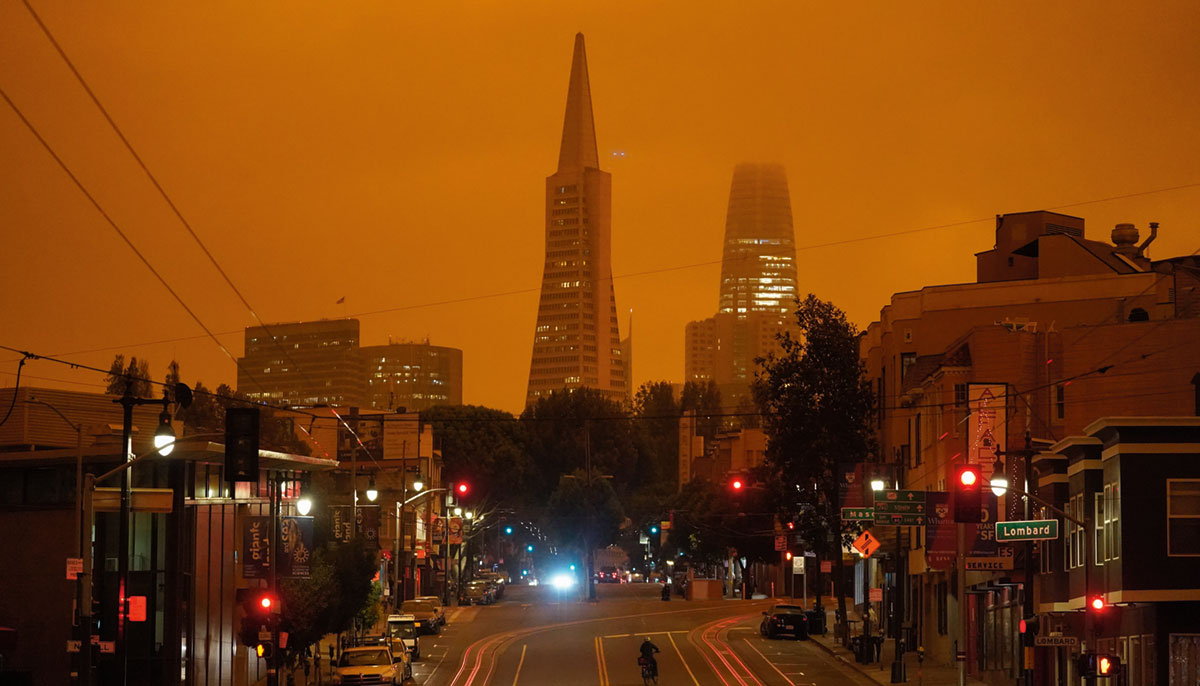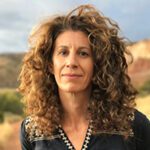I remember when the pandemic was a novel event, the thing that was happening. My partner and I would urgently flutter around the house. We stocked up on Tylenol, checked our temperatures, traded rumors with the neighbors, and drove across town in search of yeast, toilet paper, and eggs. Our home was filled with the constant sound of handwashing, and at our nightly online meetings, three generations of our family would press faces to screens, trying to reach out to each other for comfort. We mourned those who had died while keeping a glance over our shoulder, sure we were next.
This was long ago. Now corona is just the background while other things happen. We’ve settled in for this long season of mask-wearing and isolation. The dust bunnies in the corners of our house have grown into dust elephants, holding forth in their own long conversations. My meditation cushion is shoved far under the couch. We have ceded the living room to the elephants, the dining table to the teenagers. And the marital bed—the site that is supposed to be the locus of the unconscious, deep rest, and sensual pleasure—has been repurposed as our Zoom office. After all, it gets the best light and has the plainest background.
When I go out, I wrap myself in so many layers of protection against virus and smoke that I can’t seem to unravel them all when I get home.
Corona season requires layers. On the little cabinet by the door where we used to keep a basket of rocks and other found treasures, we now keep a multiplying assortment of masks, hand sanitizers, and gloves. In the bottom of the cabinet, where we used to keep the odds and ends people left at our house at parties, we keep more masks and sanitizer and gloves. No guest has been in our house for months, so no one leaves anything behind.
The weather changes. Footsteps wipe away the Black Lives Matter sign chalked on the sidewalk, and a new one appears. A friend’s father, a janitor, dies of virus complications. During the online memorial, we freeze in our grief, the connection unstable. The season continues. We protest louder. Is this thing on? Our voices are muffled through our masks.
Sometime during the season, smoke arrives at the front door. I first smell it when I go out to move the trash cans. Soon we can’t go outside. Ash falls in my eye when I look up. The West Coast wildfires started early this year, a combination of lightning, record high temperatures, and years of fire mismanagement. Clear cutting and absolute suppression of fires for decades results in a lot of fuel quick to burn out of control. It’s a good reminder: whatever we don’t acknowledge roars back tenfold.
Smoke season means helping my mother pack her “go bag” and setting up her generator for the formerly unthinkable but now routine blackouts. It also means rummaging in our basement for the air filter we’d buried behind outdoor equipment (bikes and surfboards!) that are now of no use. I guess the good news is that the basket of masks is already by the front door. We add, “How’s the air?” to the daily questions we’d never asked before.
In the middle of the night, my partner’s phone hits me on the head. He has taken to sleeping with it, like a stuffed animal, clutched in his fist. In his restlessness, he flails his arm to ward off whatever is coming next, and the phone flies out and lands hard on my temple.
In other times, I might have revived an old argument about phones in the bedroom. But after a little tension early in the season when we negotiated who wasn’t worried enough and who was too worried, we no longer fight. We are too dulled by the days, too weary, and company is too precious to be worth the anger. There’s no place to stomp off to and there’s no way to keep track of time. How would I know if I’d been mad for hours or days or just minutes? Better to save our energy for evacuation.
I gently move his phone to the floor, kiss him on the forehead, and go back to sleep. In the morning, there is a gray bruise on my temple. When I go out for groceries, with mask, glasses, hat, and gloves, the bruise, like everything else, is hidden.
When I go out, I wrap myself in so many layers of protection against virus and smoke that I can’t seem to unravel them all when we get home. After hours outside navigating other humans, I jump back when anyone gets too close. My partner and I dance around each other, forgetting that we can actually touch. Too close, my body says. Too close.
The seasons of smoke and pandemic wear on us in a way that twenty-five years of living together through births and deaths have not. The deer tromp through our victory garden, eating the tomato plants and upending the squash. We’re left with tiny potatoes, smaller than my fingernails. My computer is stolen in the middle of the day. My father breaks his wrist trying to tend to his front yard. Cells mutate in a friend’s breast. The toilet bursts and the floor collapses under the weight of the water, a thud that barely wakes us in the night. Each crisis has to crowd its way in through the thick smoke to be noticed.
Our home is tiny, our bedroom just a room for a bed. My partner and I ping-pong past each other in a way I remember from when our babies were babies, and we took turns providing their constant care—one person showered while one person cooked; one person cleaned while one person worked. Now our babies are teenagers in their rooms, their doors closed, their slack faces lit by their screens.
Finally, one morning, when the air has gone from hazardous to merely unhealthy, we leave the city to see the Pacific Ocean. On the drive out, we are awkward with each other, as if on a first date. I can’t remember the last time we were alone, without children in hearing distance. We have no news to report and so drive in silence through the mid-morning fog.
Hiking up and over the coastal cliff, our silence continues. I need it to reacquaint myself with feeling anything at all, overwhelmed by the color and sound and texture that exist beyond the four painted walls that have been my horizon for so many months. The air smells of purple sage and rosemary. The path is overgrown with prickers and thistles. Crows circle, come closer than I’ve ever seen them. These hills are theirs.
My partner walks beside me and we let our hands brush each other, casually, accidentally, and we do not pull away. Below us, the ocean waves crash, as they have been doing all along, without us there to see them. Each wave is like a hammer and their constancy finally breaks through the personal protective layer I’ve had wrapped around me. I move closer to the body next to mine. In our cramped four walls, I needed space, but here, amid the vastness, we are drawn back to each other.
We climb down the path to Pirate’s Cove. Alone among the rocks, seaweed, and the flotsam and jetsam, we find the washed-out hull of an old boat. Standing inside of it, we undress and then, in unspoken agreement, dive naked into the crashing waves. The ocean doesn’t social distance. It touches me everywhere, all the parts that I have hidden and wrapped and kept closed. Salt stings my eyes. There is no difference between tears and salt water.
Soon, we stumble out, giddy, shivering, and laughing. Standing together, face to face, we breathe each other in. Slow inhale. Deep exhale. I have not taken a breath this full in months. It is only a moment, but it’s a moment where vulnerability feels like togetherness and not like death.
And then, we hear a dog bark and a child yell. Other people are coming down the path. Before this season, we would have reached quickly for our clothes, wanting to save the visitors, as well as ourselves, some embarrassment. But now, we do not even think of it. Naked, our hands shoot out, we reach for our masks.

